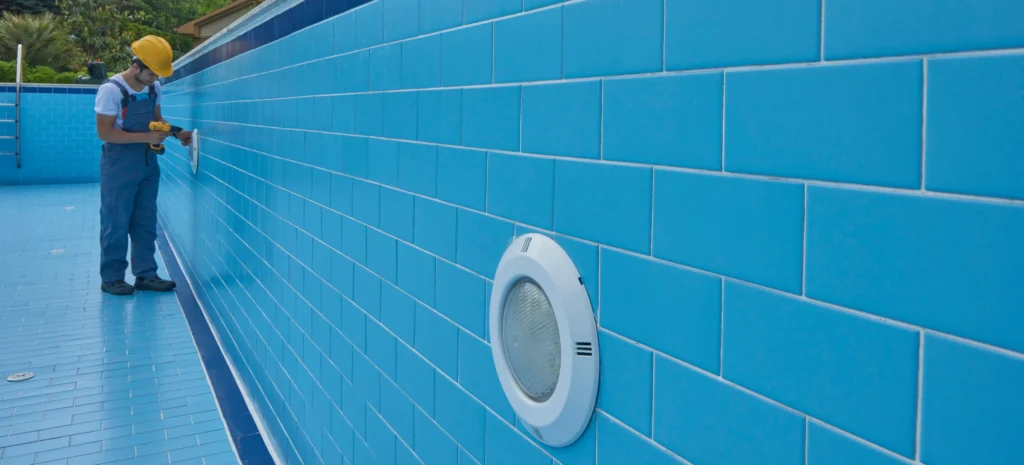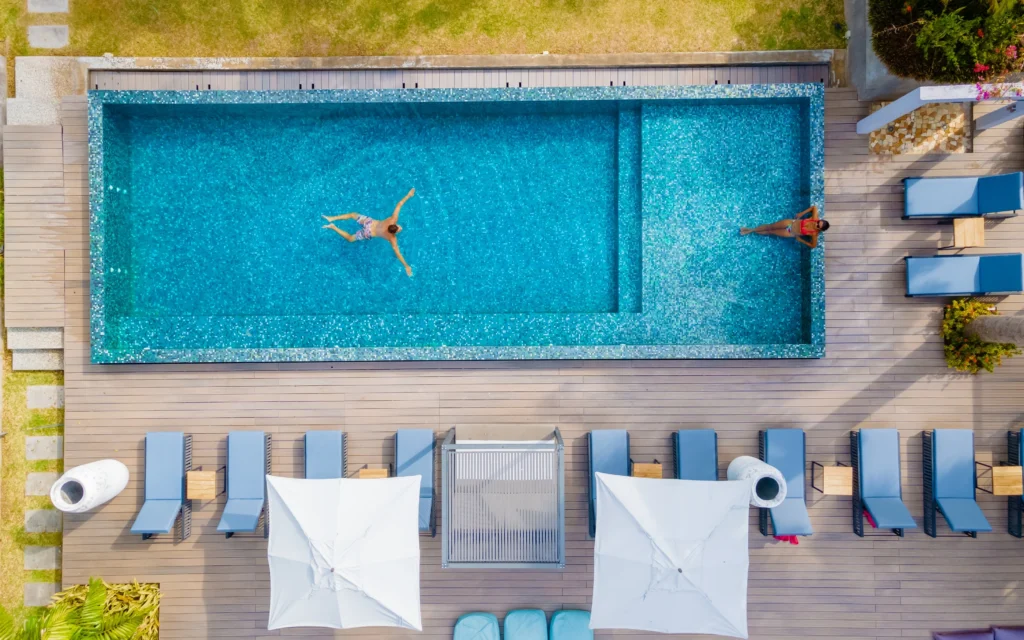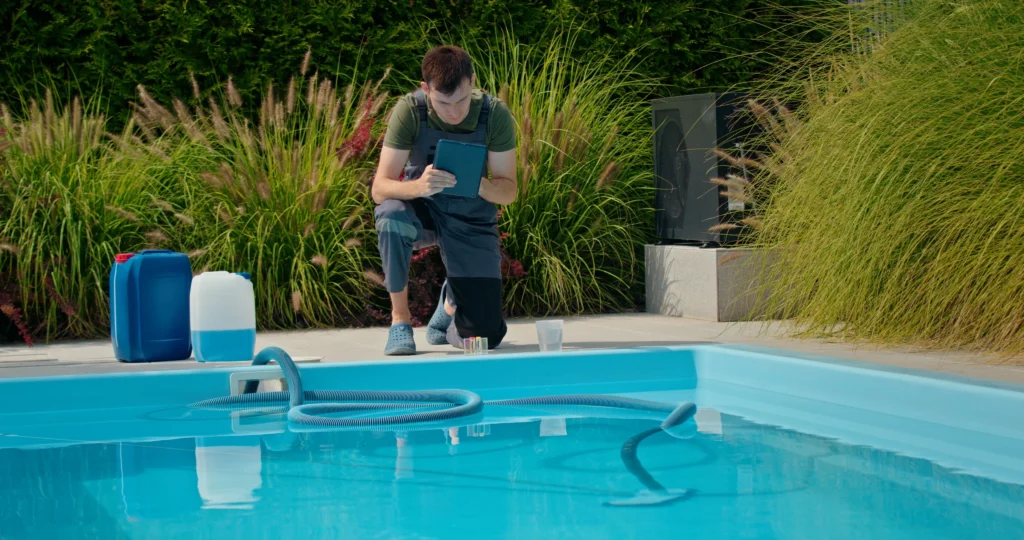How Much Will It Cost To Build A Pool?
Whenever summer kicks into gear, Aussies go flocking to their nearest body of water. Normally, that means the beach or local swimming pool. But if you’re a water lover, why not bring the fun into your own backyard and build a swimming pool yourself! But before you start daydreaming of fun in the sun, you’ll have to answer the golden question: how much will it cost to build a pool?
If you need a little help getting your budget over the line, a fast loan from Swoosh can help. And the winter months are the perfect time to start researching for and building your pool. So to help you get started and make sure no warm days are wasted, we’ve put together this guide to help figure out how much pools cost in Australia.
Overview
- What type of pool is right for me?
- Things that impact the cost of a pool
- Other costs to consider
- Is putting in a pool worth it?
What type of pool is right for me?
In Australia, pools can cost as little as $1,000, all the way up to $100,000, and they’re divided into two distinct categories: above ground and inground pools. Whichever option you choose, the price will depend on the size and shape of your pool, as well as its placement in your backyard.
How much is an inground pool?
Inground pools require excavation, higher quality materials, and more complex setups. All of those things add up, with high-end concrete pools in elaborate designs costing over $100,000.
Opting for a fibreglass pool shell will see significant savings in both time and money. A concrete pool could take a few months to complete, whereas fibreglass only sets you back a few days. Depending on the size and shape, the shell could cost as little as $15,000. They’re also easier to maintain, while still being incredibly durable.
How much is an above ground pool?
If you want to save yourself the cost and hassle of excavating your backyard, or if you simply don’t have room, above ground pools are by far the cheaper option. You can buy DIY kits for as little as $3000, but of course you’ll have to be confident you can install it yourself. It will typically consist of constructions made from resin, aluminium, steel or wood.
Things that impact the cost of a pool
Once you’ve decided on an inground or above ground pool, there are plenty more decisions you’ll have to make that all affect the final cost of your pool. These things include:
- Shape: a small square or rectangle might be the classic shape that comes to mind, but how does that fit in your backyard? Maybe you’ll need to opt for an oval or kidney shape, or even a custom shell which could drive the price up
- Tiling: Ceramic, glass, natural stone, mosaic… There are plenty of options to pick from, all of which come with their own price tag to consider.
- Fencing: all pool fences must comply with your state’s pool safety laws, so make sure you check them before you get started. Consulting a pool safety inspector or building certifier on board early can help you avoid making a costly mistake.
- Lighting: planning on any night swimming? Pool lighting isn’t normally a costly addition, but you want to choose an energy efficient option to save on bills.
- Heating: if you live in one of the cooler states like Victoria or Tasmania, pool heating might be a necessity so you can swim all year round.
- Landscaping: this is particularly important to inground pools that require excavation. Your yard might take a beating during the build, and this would be the perfect opportunity to design a new space, or add some greenery to complement your new pool.
- Decking: this can be a great option to make an above ground pool look and feel more built in.
Other costs to consider
It’s not just the pool itself you’ll be looking at spending your hard-earned cash on. Even once you factor in fencing and landscaping, you’ll still have some ongoing costs to make sure your pool stays beautiful.
- Cleaning: ongoing maintenance is every good pool owner’s responsibility. You’ll need to consider the filtering system, as well as the cost of any chemicals you use throughout the year.
- Water and energy bills: the water itself, and the constant running of pumps and lights can all drive up your bills, so make sure you factor those costs into your budget.
- Furniture: once your pool’s been built, you want to be able to enjoy it! That could mean outdoor seating and lounge furniture to give you somewhere to dry off.
Is putting a pool in worth it?
Once you’ve added up all the potential costs of building a pool, you might be wondering whether putting a pool in is worth it, and do pools add value to your property?
You’ll have to consider your reason for putting in a pool. Are you an avid swimmer who wants a place to train? Are you building a new space for your family to enjoy the outdoors together? Or are you simply looking for a way to boost the value of your property?
Installing a pool can bring you years of enjoyment, and make your home a destination for friends and family to enjoy. But whether or not it will increase the value of your home depends on your location. Look into real estate listings in your area, and compare the price of homes with and without pools to see how much value they’re adding.
Make your next summer perfect with a pool
Pools are fantastic for fun, exercise, and stress relief in general. For these reasons, they act as great investments for you, your family, and your property.
If you’re looking for that little boost to get you the pool of your dreams, get in touch with the team at Swoosh today. With our quick online approval process, you’ll be able to get the cash you need fast. Apply now to get your summer started!
FAQs
What is the cheapest pool to build?
An above-ground vinyl-lined pool is typically the cheapest option for a swimming pool in Australia.
What is the most expensive part of building a pool?
The construction phase, which includes all the excavation and installation of your pool shell, is the most expensive phase of building a pool.
Is a pool a good investment?
Especially in warmer states like Queensland, a pool can make your home much more desirable to the average buyer.











